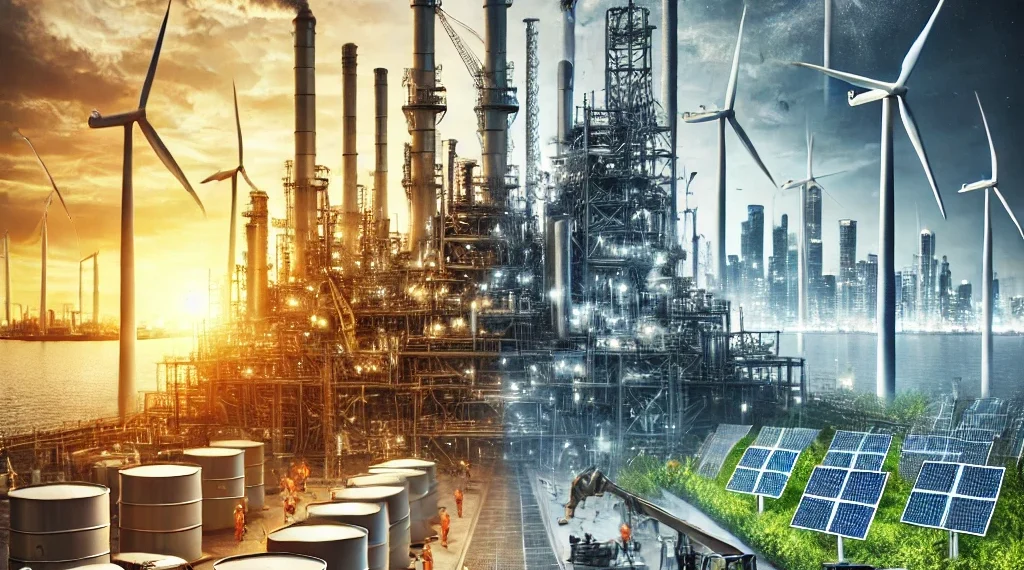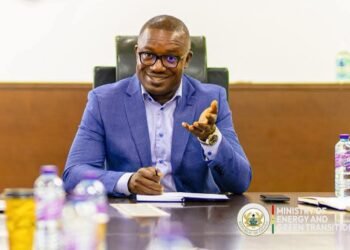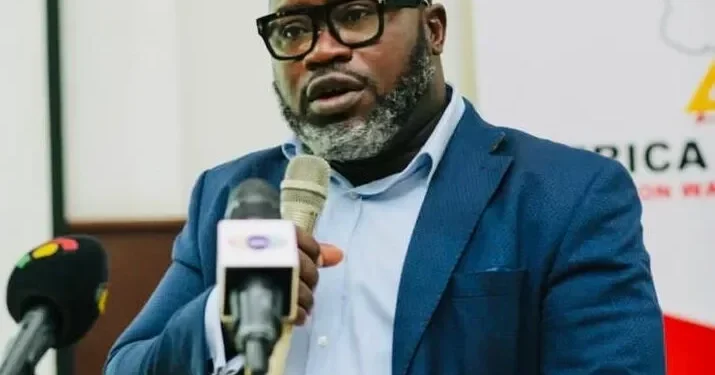Ghana has outlined an ambitious roadmap to shift from fossil fuel dependency toward a cleaner and more sustainable energy future, with plans to increase renewable energy generation to 10% by 2030 and 50% by 2060, according to the Ministry of Energy and Green Transition.
The revelation was made by Dr. Yussif Sulemana, Technical Advisor at the Ministry, during a sideline event hosted by the Africa Sustainable Energy Centre (ASEC) at World Energy Week 2025.
He described the move as a critical component of Ghana’s broader energy transition framework, which seeks to balance sustainability, affordability, and industrial growth amid global climate challenges.

“Our target is that by 2030, about 10% of our energy generation should come from renewables.
“This will be driven by innovation, collaboration, and investment in green technologies such as solar, hydrogen, and carbon capture.”
Dr. Yussif Sulemana, Technical Advisor at the Ministry
The initiative is part of Ghana’s long-term strategy to diversify its energy mix and reduce its carbon footprint while maintaining energy security.
Currently, the country’s power generation depends heavily on hydrocarbons, particularly oil and gas, which account for more than 80% of the energy supply.
A Sustainable Transition, Not a Sudden Shift

Dr. Sulemana emphasized that Ghana’s transition will not be abrupt but strategic and inclusive, ensuring that the country’s industrialization goals and economic development are not jeopardized.
“Whether we can keep up with the global energy transition pace is too early to tell, but we are doing our best.
“Our medium-term target is 10% by 2030, and by 2060, we aim for 50% of our power generation to come from renewables.”
Dr. Yussif Sulemana, Technical Advisor at the Ministry
He further noted that natural gas will remain an essential transition fuel in the medium term as Ghana works toward scaling up renewable capacity.
“We already have one gas plant and are building another as part of our transition strategy.
“This gives us the breathing space to transition at our own pace.”
Dr. Yussif Sulemana, Technical Advisor at the Ministry
To meet these targets, the Ministry of Energy and Green Transition is pursuing a series of innovative energy solutions, ranging from solar installations onshore and offshore to the deployment of solar-powered pumps in agriculture and rural electrification programs.
“In Ghana and across our ministry, we are embarking on a lot of innovative technologies.
“We are widening our technology base to build resilient systems that can meet our energy demand sustainably.”
Dr. Yussif Sulemana, Technical Advisor at the Ministry
One of the ministry’s priorities is investing in carbon capture technologies, which allow the country to mitigate emissions from existing hydrocarbon projects while earning carbon credits under international frameworks.
This, he said, will enable Ghana to continue leveraging its natural resources responsibly as it scales up renewable energy production.
Aligning with National and Global Goals

The energy expert was quick to clarify that Ghana’s energy transition plan is not a race to match global trends but rather a home-grown strategy that aligns with national development priorities.
“[These efforts] are about charting a course that aligns with Ghana’s future without negatively impacting development and the economy.”
Dr. Yussif Sulemana, Technical Advisor at the Ministry
The government’s approach, he noted, is anchored in economic pragmatism and climate responsibility ensuring that while Ghana contributes to global decarbonization goals, it also safeguards its fiscal stability and industrial competitiveness.
Dr. Sulemana acknowledged that renewable projects are now becoming more attractive to investors but stressed the need to strengthen their financial viability. “If renewable energy can truly guarantee energy security, then the transition will be both smooth and sustainable,” he added.
A Vision for a Greener Future

The Ministry of Energy and Green Transition’s vision for 2060 reflects Ghana’s determination to lead Africa’s shift toward clean energy while ensuring inclusive development.
The plan aligns with international commitments under the Paris Agreement and the Sustainable Development Goals (SDGs), particularly Goal 7, Affordable and Clean Energy.
“If we stay committed to this strategy, we’ll not be caught off guard.
“We can keep pace with what’s happening in the global energy space.”
Dr. Yussif Sulemana, Technical Advisor at the Ministry
With global efforts to combat climate change intensifying, Ghana’s steady, pragmatic, and innovation-led strategy offers a potential model for developing nations striving to balance economic growth with environmental sustainability.
READ ALSO: BoG’s $1.15bn FX Injection Sparks Clash with IMF and World Bank Over Cedi Stabilization






















